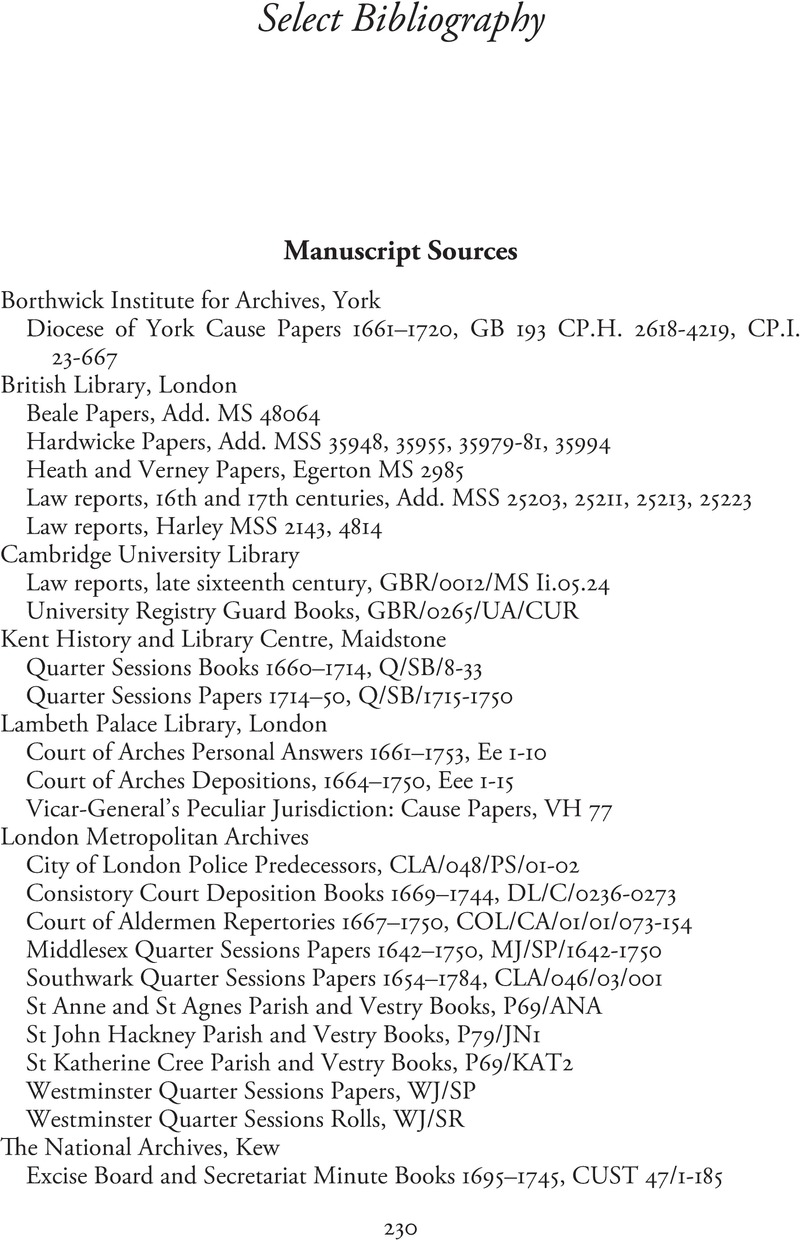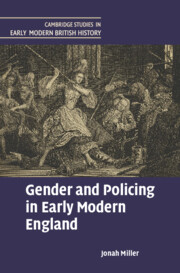Book contents
- Gender and Policing in Early Modern England
- Cambridge Studies in Early Modern British History
- Gender and Policing in Early Modern England
- Copyright page
- Dedication
- Contents
- Tables
- Acknowledgements
- Abbreviations and Conventions
- Introduction
- Part I Patriarchy
- Part II Remaking Office
- Part III Policing
- Conclusion
- Book part
- Select Bibliography
- Index
- References
Select Bibliography
Published online by Cambridge University Press: 07 June 2023
- Gender and Policing in Early Modern England
- Cambridge Studies in Early Modern British History
- Gender and Policing in Early Modern England
- Copyright page
- Dedication
- Contents
- Tables
- Acknowledgements
- Abbreviations and Conventions
- Introduction
- Part I Patriarchy
- Part II Remaking Office
- Part III Policing
- Conclusion
- Book part
- Select Bibliography
- Index
- References
Summary

- Type
- Chapter
- Information
- Gender and Policing in Early Modern England , pp. 230 - 248Publisher: Cambridge University PressPrint publication year: 2023

